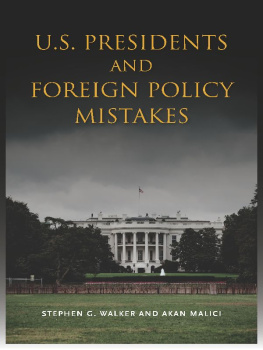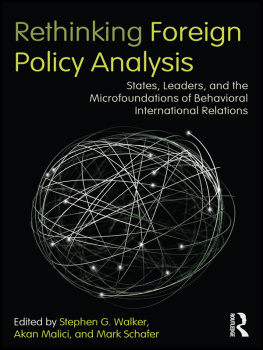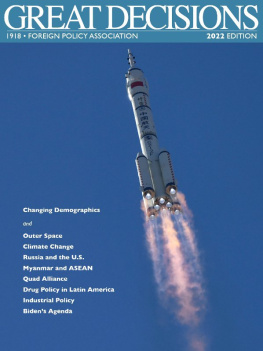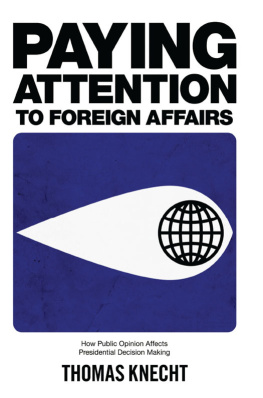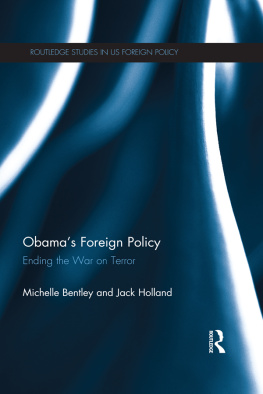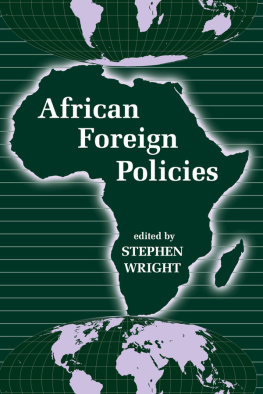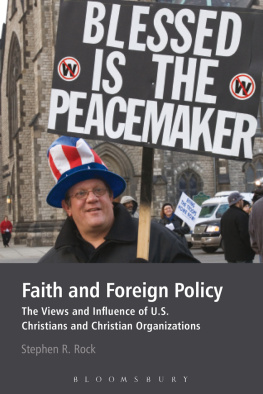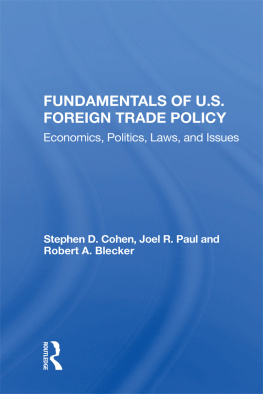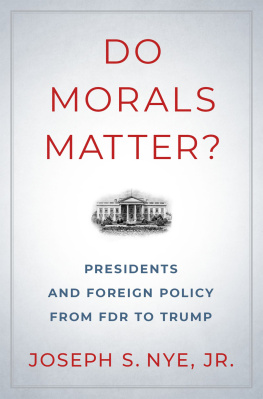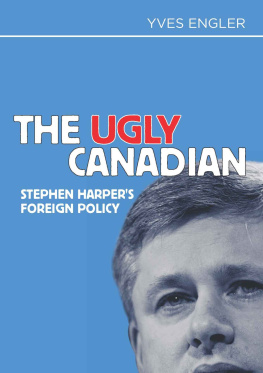U.S. PRESIDENTS AND
FOREIGN POLICY MISTAKES
U.S. PRESIDENTS AND FOREIGN POLICY MISTAKES
Stephen G. Walker
and Akan Malici
Stanford University Press
Stanford, California
2011 by the Board of Trustees of the Leland Stanford Junior University. All rights reserved.
No part of this book may be reproduced or transmitted in any form or by any means, electronic or mechanical, including photocopying and recording, or in any information storage or retrieval system without the prior written permission of Stanford University Press.
Special discounts for bulk quantities of Stanford Security Series are available to corporations, professional associations, and other organizations. For details and discount information, contact the special sales department of Stanford University Press. Tel: (650) 736-1782, Fax: (650) 736-1784
Printed in the United States of America on acid-free, archival-quality paper
Library of Congress Cataloging-in-Publication Data
Walker, Stephen G., 1942 author.
U.S. presidents and foreign policy mistakes / Stephen G. Walker and Akan Malici.
pages cm
Includes bibliographical references and index.
ISBN 978-0-8047-7498-7 (cloth : alk. paper)
ISBN 978-0-8047-7499-4 (pbk. : alk. paper)
1. United StatesForeign relationsDecision making. 2. National securityUnited StatesDecision making. 3. PresidentsUnited StatesDecision making. I. Malici, Akan, 1974 author. II. Title.
JZ1480.W33 2011
327.73dc22 2011004620
Typeset by Westchester Book Composition in 10/15 Sabon
E-book ISBN: 978-0-8047-8069-8
Preface
IN THIS BOOK we undertake a critical examination of U.S. foreign policy by focusing on foreign policy mistakes made by U.S. presidents in the exercise of power. Our goals are to understand how mistakes occur and how to avoid or fix them. These goals have led us inevitably to consider why mistakes happen, a task that can be approached on a case-by-case basis or within the framework of a general theory of mistakes. Our approach is the latter one, which has led us to incorporate into our analysis insights from several theories of action and interaction in the academic literature on foreign policy and international relations. However, we envision our audience as broader than the academic community, extending into the ranks of both ordinary citizens and political leaders. It is tough to write for all three of these audiences, which bring different perspectives and degrees of interest to bear on our topic. Since the main thrust of our analysis is to provide both a map and a compass for avoiding foreign policy mistakes, therefore, we think it is appropriate here to provide similar guidance to the readers of this book who may want to find their way to some parts of our analysis and avoid other areas.
of the book address questions that ordinary citizens and students are likely to raise about foreign policy mistakes: What are they? How many kinds are there? How do you tell one kind from another? What causes them? What are some examples of each kind of mistake in the history of U.S. foreign policy over the last 100 years or so up to the present? We answer these questions with a relatively simple classification scheme for distinguishing different kinds of foreign policy mistakes, based on ordinary usage of the word mistake, which differentiates between mistakes of omission and commission. We take this distinction and use it to identify mistakes regarding how to recognize and exercise social power in world politics. Then we show how various episodes in U.S. diplomatic and military history illustrate these different kinds of mistakes.
of the book address questions that directly interest academic policy analysts and political leaders: How does one avoid foreign policy mistakes and fix them if they occur? What are optimum strategies for making foreign policy decisions? How and why do these strategies insure against mistakes and failures and raise the chances for successful outcomes? We answer these questions with the assistance of an array of theoretical and methodological tools, including game theory, role theory, exchange theory, social network theory, and signed graph theory. We also examine evidence from computer simulations by social scientists and philosophers and from extensive reviews of world politics compiled by historians and other social scientists. We use this information to construct a general argument on behalf of certain foreign policy strategies while being more critical of others. Instead of historical case studies, the analytical narratives in these chapters are told with tables and figures adorned by mathematical symbols and statistics.
We end the book with a summary of the whole argument and a list of ten precepts that attempt to capture its main elements. A casual reader may want to begin there and then select chapters of personal interest from this menu. We expect a more specialized reader will probably want to start at the beginning and follow the entire argument in detail. In our efforts to make this argument and to receive helpful feedback, we have presented aspects of it to audiences at Arizona State University, Baker University, Furman University, the University of Kansas, the University of Missouri, the University of North Texas, Texas Christian University, Zirve University (Turkey), Sabanci University (Turkey), and Trinity College (Dublin), and at annual meetings of the American Political Science Association and the International Studies Association.
We are grateful for the comments from colleagues in these venues and for the careful reviews of the entire manuscript by Yaacov Vertzberger and Patrick James. We are indebted as well to Steven Brams, Robert Axelrod, and Robert Jervis, whose collective scholarship on agent strategies and system effects in world politics informed and inspired much of the theoretical analysis in this book. Any errors that remain are our own. It is our pleasure to acknowledge the assistance and enthusiasm of Geoffrey Burn and Jessica Walsh at Stanford University Press, John Donohue at Westchester Book Services, and the institutional support from the School of Politics and Global Studies at Arizona State University and the Department of Political Science at Furman University.
We dedicate this book to our respective wives, Jacqueline Dierks-Walker and Johnna Malici, who have believed in the project and its authors throughout its gestation from notes scribbled on the back of an envelope outside a classroom in Dublin to publication as a book several years later.
Stephen G. Walker | Akan Malici |
Flagstaff, Arizona | Greenville, South Carolina |
U.S. PRESIDENTS AND FOREIGN POLICY MISTAKES
PART I
The Anatomy of Foreign Policy Mistakes
CHAPTER 1
Mistakes as a Feature of Everyday Political Life
INTRODUCTION
In the Apology, Plato recounts Socrates inquiry into human wisdom. The story begins with the journey of Socrates pupil, Chaerephon, to the Oracle in Delphi where he asks the question, Who is the wisest of all men? The Oracle responds, No one is wiser than Socrates. The pupil reports this to Socrates who, knowing that he himself is not wise, subsequently seeks out a politician reputed for his wisdom and aims to demonstrate the fallibility of the Oracle. To his disappointment, Socrates finds that the politician has no wisdom either, although the politician thinks of himself as wise. Socrates concludes, Well, although I do not suppose that either of us knows anything really beautiful and good, I am better off than he isfor he knows nothing, and thinks that he knows. I neither know nor think I know (Plato 1892, 21). In the end it is this recognition, Socrates self-awareness, that vindicates the Oracle.


